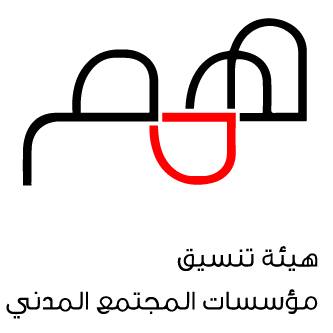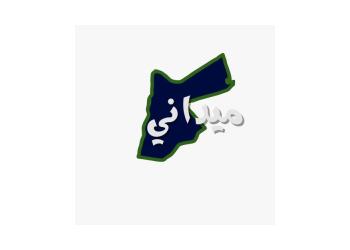"Egypt Station" A platform to share the plight of Egyptian in Jordan

Sayed, who is a 42 year old Egyptian living in Amman, has yet to receive his wages for February 2022. He works for a cleaning company for 200 dinar a month, less than the official minimum wage in Jordan set at 260. Each day, he washes cars of residents in a neighborhood in East Amman to earn enough money for his bare essentials.
Sayed doesn’t find anyone else except “Egypt Station,” a Radio al-Balad broadcast station, engaging with the Egyptian community in Jordan. He shared his story with the station so that the news might reach one of the thousand Egyptians that tune in through Facebook or radio.
Statistics from Jordan's Ministry of Trade indicate that the number of Egyptian foreign workers is approximately 68% of all foreign workers in the country. Around 500 thousand workers have a residency permit, while statistics of labor centers suggest the number may be larger with the large number of illegal workers.
Jordan’s Labor Law stipulates that the delaying payment of wages may not exceed one week and that any individual facing longer delays may submit an official complaint to the Ministry of Labor to take appropriate measures. However, Sayed fears submitting any complaint to the Jordanian authorities.
Article 23 of the Jordanian Constitution says that the state will protect labor and “every worker shall receive wages commensurate with the quantity and quality of his work.”
According to Ministry of Trade statistics, Egyptians work in certain sectors approved for migrant workers, such as construction or restaurants. The majority of Egyptians work in farming at around 86 thousand workers, followed by the service industry with 26 thousand workers.
A recent report from Labor Watch in Jordan, a civil society organization, revealed suspicions of widespread human trafficking practiced in the agriculture sector with Egyptian laborers.
The need for a special program to discuss issues of Egyptian workers became more pronounced after the COVID-19 pandemic exacerbated suffering during lockdown and halted employment. Many were sent back to Egypt without compensation or rights due to Jordan’s exclusion of foreign workers from protections presented by the country’s social security program.
The host of “Egypt Station” is Dr. Sara Ghalab, an Egyptian woman married to a Jordanian, who says that the program works to connect the voices of Egyptians in Jordan to relevant organizations, in addition to informing them of their rights and responsibilities. The program is a platform for them to express themselves and what is on their minds.
The program specializes in the Egyptian communities’ affairs in Jordan, especially labor, educational, and daily life issues. It contains a news brief of the most important local Egyptian news and what concerns them in Jordan across different sectors.
Mrs. Saheer, an Egyptian woman living in Jordan, described Egypt Station as follows: “over the 25 years I spent here in Jordan, I was ignorant of many of my rights laid out for me by the law. Often I struggled to communicate or sort out programs facing me until I found Egypt Station. Radio al-Balad covers the issues facing our community here in Jordan and helps apprise us of our rights.”
She went on to say, “Tens of thousands of Egyptians in Jordan are ignorant of their rights, and it is difficult for them to find out, especially because many are uneducated. “Egypt Station” plays a role in clearly communicating their voices to officials and listening to their issues and problems, to say nothing of their efforts to show them their rights that many Egyptians are ignorant of.”
Tawfiq, an Egyptian worker, agrees with Saheer on the importance of the program which introduced him to his various labor rights, including social security, and health insurance, among others, as written in the law. He adds that the program presented a qualitative addition to their knowledge through which they were able to reach out to concerned parties that answered them and worked to alleviate the burdens the community faces.
All treaties, especially the basic treaties concerned with civil, political, economic, and social rights signed by Jordan, stipulate that all residents of the country must be given all the rights prescribed for them, with the exception of the right to vote, and to run for and hold high office.
The World Trade Organization (WTO) describes forced labor, or mandatory work, as “any work or services imposed upon any person under threat of punishment, and that which the person would not themselves offer willingly.”
According to the director of Radio al-Balad, Ataf al-Rawdan, “Egypt Station” comes as a “continuation of the policies of Radio al-Balad which focus on the interests and concerns of marginalized groups and all residents of Jordan, regardless of their background. The team is committed to improving the principles of justice and equality for all residents of the kingdom.”
The program welcomes questions and concerns facing Egyptians in Jordan, and sets aside its first episode to discuss the problem of work permits during COVID-19 and options of return to Egypt for those interested in it. Similarly, the program has touched on labor conditions and the most prominent government decisions affecting Egyptian workers.
Radio al-Balad endeavors to take up local issues across politics, society, culture, sports, and entertainment, covering the capital of Amman with the motto “Voice of the Community, Voice of the People and the Country.” It is operated by Community Media Network is a not-for-profit organization established and run by the journalist Daoud Kuttab. It also operates Amman Net. Community Media Network was registered on March 19, 2007 with the goal of conducting cultural and media projects in the Hashemite Kingdom of Jordan and the Arab world, and is part of the Himam alliance, which is an abbreviation for the Jordan Civil Society coalition, upholds the values of democracy and human rights, rule of law, justice, and good government.
You can find more information on the Himam website here.













































